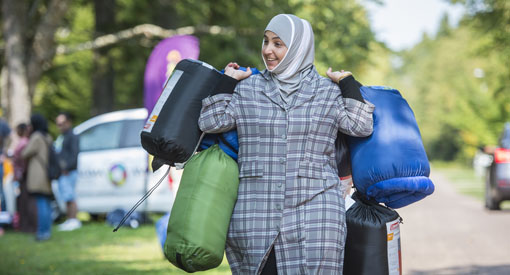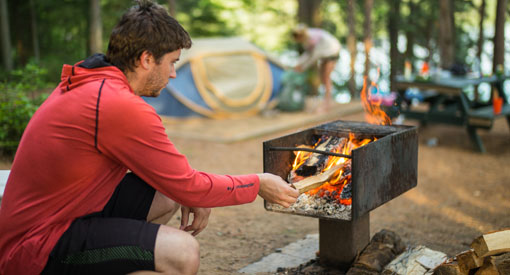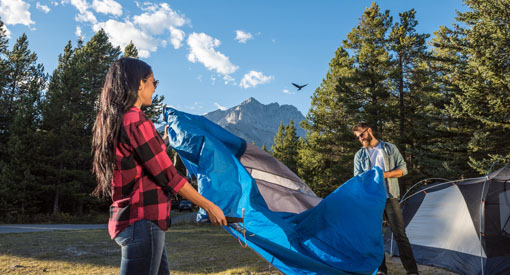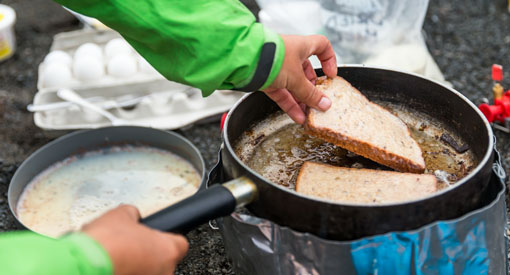Camping 101: What to know before staying the night
There’s no better way to experience a national historic site or national park than by camping in it.
Learn about camping types, amenities, and services to choose from at Parks Canada administered places. We also cover the essentials for new campers, how to reserve, and some rules to keep in mind when you visit.
What type of camping is for you?
Do you prefer to spend the night in comfort, or get away from it all? From roughing it to home away from home, we have your camping style covered.
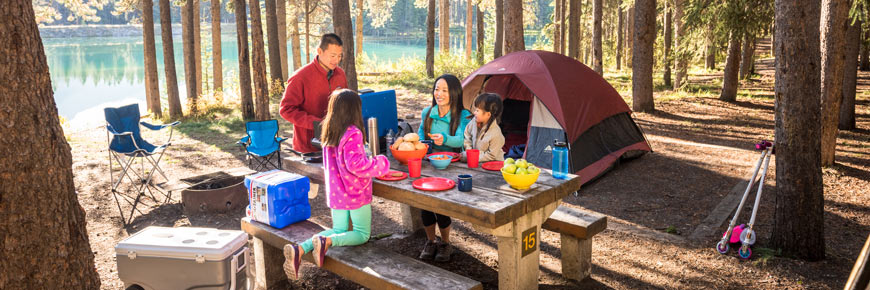
Frontcountry camping
A great option for beginners. Frontcountry campgrounds usually include:
- washrooms with showers
- kitchen shelters
- electrical
- sewer and water hookups
- Wi-Fi access zones
Campgrounds may also be close to outdoor theatres, beaches, grocery stores, playgrounds and picnic shelters. Sites may have a fire pit, or access to a shared fire pit.
Frontcountry campgrounds are generally easy to access by car, and RVs are welcome in many locations.
A few locations also offer equipped camping: we provide the camping equipment you’ll need (tent, stove, lantern, etc.), thanks to our partnership with MEC.
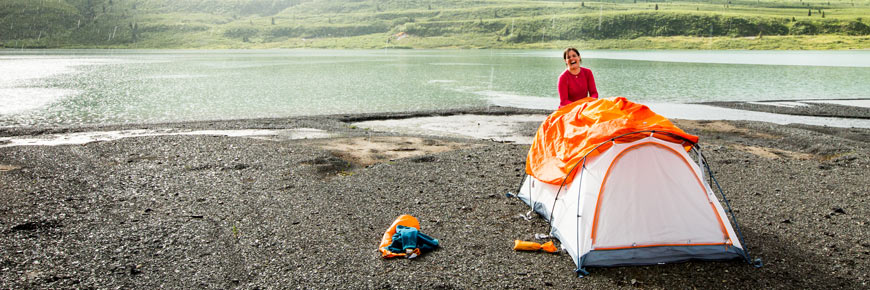
Backcountry camping
Looking for more of a challenge? Try the ultimate outdoor adventure: you, your camping gear and the great outdoors. Your backcountry campsite might include:
- a tent pad
- picnic tables
- outhouses
- firewood
- a fire pit
Most backcountry sites are not accessible by car, and you can expect to do some hiking, canoeing, or kayaking to get to them.
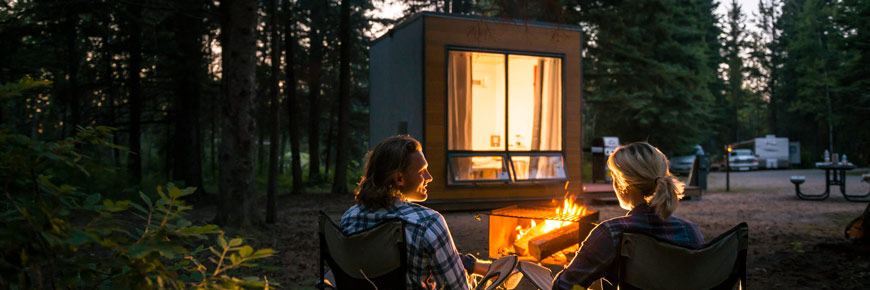
Comfort camping
‘Roughing it’ not for you? These options are available in many places - no assembly required:
- oTENTik: A cross between an A-frame cabin and a tent
- Yurt: A circular hut
- Cabin: A small rustic house-like shelter - these vary in size
- Overnight mooring: Moor your boat overnight in a historic canal
Looking for something more unique? Try these:
- Ôasis: A teardrop-shaped ‘duplex’
- MicrOcube: A one-room mini-cabin with a large picture window
- Tipi: A cone-shaped canvas tent, traditionally used by Plains peoples
- Historic stay: Sleep in a fort, a lodge, a period-style tent, a lockmasters’ or lightkeepers’ house or a period-style home
How to make a camping reservation
Create a new account, prepare for launch day, and reserve.
How to reserve
Services and amenities
Not sure of the difference between serviced and unserviced? Here’s a quick breakdown of what’s offered at our campsites.
| Serviced campsite | Unserviced campsite | |
|---|---|---|
| Always includes | Electrical | No facilities |
| May also include |
Water
Water and sewer |
Shared washroom with toilets only
Shared washroom with toilets and showers |
| Best for you if | You are camping in an RV that needs water, electricity, and/or sewer hookups | You are camping in a tent or pop-up camper and don’t need water, electricity, and/or sewer hookups |
Camping basics
Camping for the first time and don’t know where to start? Or maybe it’s been a while and you need a refresher? Parks Canada’s Learn-to Camp program has tools to help you plan a great camping trip.
Can’t decide where or how to camp? See all the options, organized by type of camping or by province.
Most importantly, stay safe during your camping adventure.

Camping rules and etiquette
Our protected areas are unique places and require unique rules to protect them. These include laws on permits, quiet hours, campfires, pets and more. Beyond that, follow these simple guidelines to ensure everyone has a good camping trip:
- Respect the posted speed limits and remain alert while driving. Trees may obstruct your view and you should expect pedestrians (including children) and sometimes wildlife on the road.
- Use roadways and pathways to travel to and from campground facilities (cook shelters, bathrooms, etc.). Cutting through a neighbouring campsite will disturb other campers and may cause damage to fragile vegetation.
- Throw your recyclables and trash into marked bins. Help keep the park clean.
- Follow "Pack In, Pack Out" rules. If you bring garbage into the backcountry (food wrappers, beverage containers, etc.) you must carry it back out when you leave.
- Keep noise to a reasonable volume. Excessive noise is prohibited at any time of day. Respect other campers’ tranquility and campground quiet hours.
- Keep your pet on a leash. This rule applies at all times.
- Keep your campsite clean. Avoid attracting bears and other wildlife by keeping a ‘bare’ campsite.
- Use a personal basin to wash dishes on your campsite. Do not use the bathrooms or potable water taps.
- Use your own tub to wash laundry. Dump water down the outdoor sink, not inside bathrooms where space is limited.
Related links
- Date modified :
